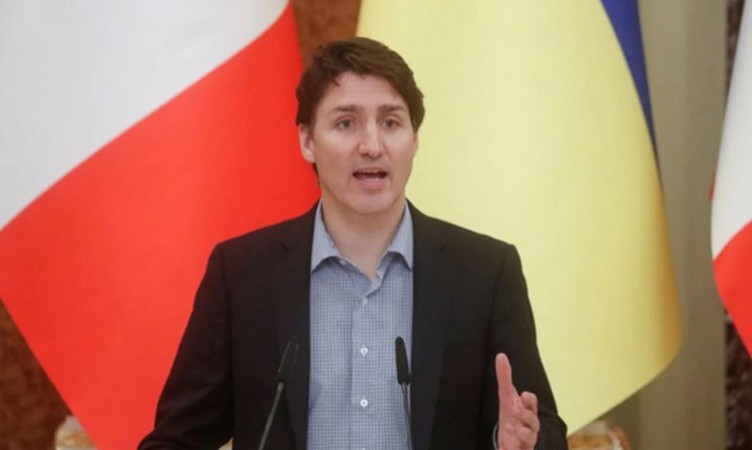
Toronto, Canada: In the midst of strained diplomatic relations between India and Canada, primarily stemming from his allegations against New Delhi concerning the death of Khalistani terrorist Hardeep Singh Nijjar, Prime Minister Justin Trudeau has become embroiled in a fresh controversy. This time, it revolves around his decision to honor a veteran with a history of service in a Nazi-affiliated military unit during World War II.
Trudeau's actions have ignited widespread criticism, prompting the Speaker of Canada's House of Commons, Anthony Rota, to issue an apology to the Jewish community following the Leader of the Opposition, Pierre Poilievre's, pointed criticism.
The Actual Events:
On a recent Friday, immediately after Ukrainian President Volodymyr Zelensky's address, the House resounded with applause as 98-year-old Yaroslav Hunka was introduced as a "war hero" by the Speaker. Hunka was recognized for his service in the First Ukrainian Division, and Trudeau subsequently met and honored him.
Canadian lawmakers erupted in applause, and President Zelensky expressed his gratitude by raising a triumphant fist, leading to two distinct standing ovations from the gallery.
Zelensky's visit to Ottawa aimed to bolster support from Western allies for Ukraine in its ongoing conflict with Russia. It is worth noting that despite Vladimir Putin's attempts to label Ukrainian opponents as "neo-Nazis," President Zelensky himself hails from Jewish heritage and lost relatives during the Holocaust.
Opposition Targets Trudeau:
This move has sparked outrage, with Pierre Poilievre, the leader of the opposition, drawing attention to Hunka's past affiliation with the 14th Waffen Grenadier Division of the SS, a Nazi division.
Poilievre remarked, "This is a deeply regrettable lapse in judgment on the part of Justin Trudeau, whose personal protocol office is responsible for arranging and scrutinizing all guests and programs for state visits of this nature," in a post on social media.
Following the backlash, Speaker Anthony Rota issued an apology, stating, "In my remarks following the President of Ukraine's address, I recognized an individual in the gallery. Subsequently, I became aware of additional information that leads me to regret my decision."
The Office of Prime Minister Justin Trudeau also released a statement, acknowledging Speaker Rota's apology and assuming full responsibility for extending the invitation to Hunka and his recognition in Parliament. The statement highlighted that this action had taken place without prior notification to the Prime Minister's Office or the Ukrainian delegation.
Rota expressed his profound apologies, saying, "I especially want to extend my sincerest apologies to Jewish communities in Canada and worldwide. I take full responsibility for my actions."
On Sunday, the Friends of Simon Wiesenthal Center for Holocaust Studies issued a statement condemning the actions of Hunka's division during World War II, attributing them to "mass murder of innocent civilians with an unimaginable level of brutality and malice." The statement called for an apology, not only to Holocaust survivors but also to the Second World War veterans who courageously fought against the Nazis. It also demanded an explanation regarding how Hunka gained access to the chambers of the Canadian Parliament and received recognition from the Speaker, followed by a standing ovation.